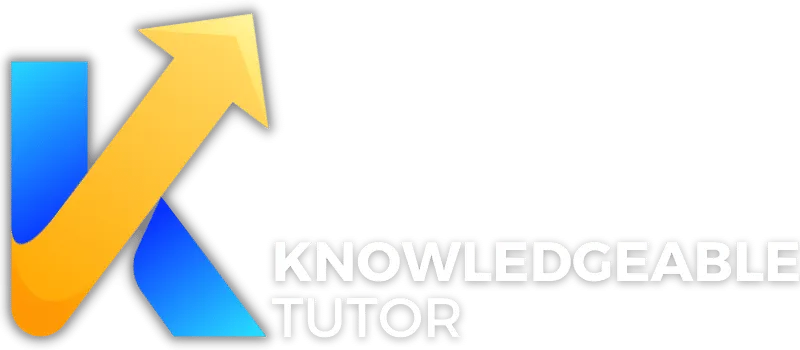Understanding Different Online Tutoring Platforms

Fanie Naude
CEO & Founder of Knowledgeable Tutor, Buznet Direct, YMC & Naude Consulting

Fanie Naude
CEO & Founder of Knowledgeable Tutor, Buznet Direct, YMC & Naude Consulting
The digital age has brought about a revolution in the field of education, particularly in online tutoring. The article delves into various aspects of online tutoring, exploring platforms, strategies, challenges, and the future of this burgeoning field. It emphasizes the importance of aligning teaching philosophy with the right platform and leveraging technology to enhance education. As Paulo Freire aptly stated, "Education does not change the world. Education changes people. People change the world." The article serves as a comprehensive guide for tutors aiming to excel in the digital age.
In This Article
- Understanding Different Online Tutoring Platforms: The article provides insights into selecting platforms that suit the subject and teaching style, including a comparison of features and pricing.
- Strategies for Effective Online Tutoring: It outlines strategies such as creating engaging content, utilizing technology, and building trust, supported by real-life case studies.
- Challenges and Solutions: The article explores the challenges faced by online tutors and offers strategies to overcome them, emphasizing the importance of growth and success.
- Top Platforms for Different Subjects: A detailed analysis of platforms for various subjects like Math, along with features, pricing, and recommendations, is provided.
- Interactive Features of Online Platforms: It highlights features like interactive whiteboards, quizzes, and analytics that contribute to a dynamic learning environment.
- Future of Online Tutoring: The article concludes with a positive outlook on the future of online tutoring platforms, considering emerging technologies, global reach, and ethical considerations.
The article serves as a valuable resource for tutors and educators, offering a holistic view of online tutoring, guiding them through the selection of platforms, effective strategies, and understanding the future landscape of digital education.

Introduction to Online Tutoring Platforms
Definition and Importance
Online Tutoring Platforms are digital interfaces that connect tutors with students, providing a virtual space for learning and teaching. These platforms have become an integral part of modern education, breaking down geographical barriers and offering personalized learning experiences.
Definition: An Online Tutoring Platform is a web-based application that facilitates one-on-one or group tutoring sessions, allowing tutors to share knowledge, resources, and feedback with students remotely.
Importance:
- Accessibility: Students from remote or underserved areas can access quality education.
- Personalization: Tutors can tailor lessons to individual student needs, enhancing learning outcomes.
- Flexibility: Both tutors and students can schedule sessions at convenient times.
- Cost-Effectiveness: Reduces the need for physical infrastructure, lowering costs.
- Global Reach: Tutors can expand their reach beyond local boundaries, tapping into a global market.
As the famous educator John Dewey once said, "If we teach today's students as we taught yesterday's, we rob them of tomorrow." Online tutoring platforms embody this forward-thinking approach, leveraging technology to enrich the educational landscape.
Evolution and Trends
The evolution of online tutoring platforms has been marked by technological advancements and changing educational needs.
Evolution:
- Early 2000s: Introduction of basic online tutoring with text-based chat and email support.
- Mid-2000s: Integration of video conferencing, interactive whiteboards, and multimedia content.
- 2010s: Rise of AI-powered tutoring, personalized learning paths, and mobile applications.
- 2020s: Focus on virtual reality, gamification, and data-driven insights.
Trends:
- Personalized Learning: AI algorithms analyze student performance to create customized learning paths.
- Collaborative Learning: Platforms are encouraging peer-to-peer interaction and group projects.
- Hybrid Models: Combining online and offline elements for a blended learning experience.
- Sustainability: Emphasis on ethical practices, including accessibility and inclusivity.
The evolution and trends in online tutoring platforms reflect a dynamic and responsive industry, continually adapting to meet the needs of learners and educators. Platforms like Khan Academy have pioneered free education, while others like Coursera have partnered with universities to offer accredited courses.

Types of Online Tutoring Platforms
Subject-Specific Platforms
These platforms focus on specific subjects or areas of expertise. Examples include:
- Math: Platforms like Mathway offer specialized math tutoring.
- Language Learning: Duolingo provides language-specific lessons.
- Coding: Websites like Codecademy focus on programming languages.
General Tutoring Platforms
General tutoring platforms offer a wide range of subjects and cater to various educational levels. Examples include:
- VIPKid: Offers English tutoring to children in China.
- Tutor.com: Provides tutoring in over 200 subjects.
Peer-to-Peer Tutoring Platforms
These platforms facilitate tutoring sessions between peers, often at a lower cost. Examples include:
- StudyGate: Connects students with peer tutors.
- Chegg Tutors: Offers peer tutoring in various subjects.
Understanding different online tutoring platforms is essential for both educators and learners. From subject-specific platforms to general and peer-to-peer options, the diversity in online tutoring caters to a wide array of needs and preferences. The evolution of these platforms reflects a commitment to innovation, accessibility, and quality education. As technology continues to advance, so will the capabilities and offerings of online tutoring platforms, shaping the future of education in exciting and meaningful ways.
Explore the world of online tutoring with Knowledgeable Tutor, an e-learning platform designed to empower tutors with cutting-edge tools and strategies. Learn more about how Knowledgeable Tutor is revolutionizing education.

Features of Online Tutoring Platforms
The digital age has ushered in a plethora of online tutoring platforms, each equipped with unique features to enhance the learning experience. These platforms are not merely virtual classrooms but sophisticated environments designed to replicate and often surpass the traditional learning experience. Let's delve into the essential features that make these platforms an indispensable tool for modern education.
Interactive Sessions
Online tutoring platforms are designed to foster interaction and engagement. They offer features like:
- Live Video Conferencing: Enables face-to-face interaction, creating a personalized learning experience. Platforms like Zoom and Microsoft Teams are often integrated for this purpose.
- Whiteboard Tools: These tools allow tutors and students to write, draw, and collaborate in real-time. It's like having a physical whiteboard but with added functionalities.
- Screen Sharing: Tutors can share their screens to demonstrate processes, use educational software, or review documents together with students.
- Interactive Quizzes and Polls: Engage students with quizzes and polls during the session, making learning fun and interactive.
These features contribute to a dynamic learning environment, bridging the gap between online and physical classrooms. For more insights on interactive sessions, explore our guide on maintaining student engagement in online tutoring.
Scheduling and Management
Efficient scheduling and management are vital for both tutors and students. Online tutoring platforms offer:
- Calendar Integration: Sync with Google Calendar, iCal, or other calendar systems for seamless scheduling.
- Booking Systems: Allows students to book sessions directly through the platform, with options for cancellations and rescheduling.
- Automated Reminders: Sends email or SMS reminders to both tutors and students, ensuring no missed appointments.
These features streamline the administrative aspect of tutoring, allowing tutors to focus more on teaching. For tips on effective time management, refer to our article on effective time management strategies for online tutors.
Analytics and Reporting
Understanding student performance is key to effective tutoring. Online platforms provide:
- Progress Tracking: Monitors student's progress over time, highlighting areas of improvement and those that need attention.
- Session Recording: Allows sessions to be recorded and reviewed later for assessment or revision.
- Customized Reports: Generates reports on attendance, quiz scores, and other metrics, providing a comprehensive view of the student's learning journey.
These analytical tools empower tutors to make data-driven decisions, tailoring their teaching methods to individual student needs. For more on utilizing technology in tutoring, you may find our article on tools and technology for effective online tutoring helpful.
Real-Life Example: VIPKid
VIPKid is a prime example of an online tutoring platform that has successfully integrated these features. Catering to English language learners, VIPKid offers interactive video sessions, an intuitive scheduling system, and robust analytics to track student progress. It's a testament to how technology can transform education, making it more accessible and personalized.
The features of online tutoring platforms are not mere add-ons but essential components that redefine the way education is delivered and experienced. They enable a seamless blend of technology and pedagogy, enhancing both teaching quality and student outcomes. As the famous educator John Dewey once said, "If we teach today's students as we taught yesterday's, we rob them of tomorrow." The future of education lies in embracing these digital tools, and online tutoring platforms are leading the way.

Choosing the Right Platform
Selecting the right online tutoring platform is akin to choosing the right tool for a craftsman. The effectiveness of the tool can either enhance or hinder the quality of the work. For tutors, the right platform can amplify their ability to teach, engage, and inspire. But how does one navigate the myriad of options available? Here's a comprehensive guide to assist tutors in making an informed decision.
Assessing Needs and Goals
Before diving into the sea of platforms, it's essential to understand what you need. Consider the following:
- Subjects and Levels: Are you teaching a specific subject or catering to various educational levels? Some platforms specialize in certain subjects or age groups.
- Teaching Style: Do you prefer interactive whiteboards, video conferencing, or other specific tools? Identify your preferred teaching methods.
- Budget Constraints: What's your budget for platform subscription or purchase? There are free and paid options with varying features.
- Technical Requirements: Assess the technical specifications of your devices and internet connection to ensure compatibility with the platform.
Understanding your needs aligns your search with your teaching goals. For more insights, you may refer to our guide on understanding different online tutoring platforms.
Comparing Pricing and Features
Once you've identified your needs, it's time to compare the options. Look for:
- Feature Comparison: Create a table or list comparing the features of different platforms. Include essential aspects like interactivity, scheduling, analytics, and support.
- Pricing Models: Compare the pricing structures, including subscription fees, one-time purchases, or freemium models. Consider the return on investment.
- Scalability: If you plan to grow your tutoring business, consider platforms that can scale with you, offering more features as your needs expand.
Here's a simple comparison table for illustration:
| Platform | Features | Pricing | Scalability |
|---|---|---|---|
| Platform A | Video, Whiteboard, Analytics | $20/month | Yes |
| Platform B | Video, Quizzes, Scheduling | Free | No |
| Platform C | Whiteboard, Analytics, Recording | $15/month | Yes |
Reviews and Recommendations
Don't just rely on the information provided by the platform itself. Seek out:
- User Reviews: Look for reviews from other tutors or educators who have used the platform. Platforms like G2 or Capterra provide user-generated reviews.
- Expert Opinions: Read articles or watch videos from educational technology experts who have evaluated the platforms.
- Personal Recommendations: If possible, ask colleagues or fellow tutors for their personal experiences and recommendations.
Real-Life Example: Choosing Between Zoom and Microsoft Teams
Consider the decision between two popular video conferencing tools: Zoom and Microsoft Teams. Zoom may offer ease of use and integration with various educational tools, while Microsoft Teams might provide robust collaboration features and integration with other Microsoft products. The choice would depend on the specific needs, goals, and budget of the tutor.
Choosing the right online tutoring platform is a critical decision that requires careful consideration and research. It's not merely about selecting the most popular or expensive option but finding the one that aligns with your teaching philosophy, subject expertise, and budget. As the renowned philosopher and educator Paulo Freire stated, "Education does not change the world. Education changes people. People change the world." The right platform empowers tutors to be those change-makers, leveraging technology to enhance education in the digital age. For more on building your online tutoring business, explore our article on building your online tutoring business: tips and strategies.

Top Platforms for Different Subjects
In the realm of online tutoring, the platform you choose can be as vital as the content you deliver. The right platform acts as a bridge, connecting the tutor's expertise with the student's curiosity. It's not a one-size-fits-all scenario; different subjects may require unique features and tools. Here, we'll explore some of the top platforms tailored for various subjects, offering insights to help tutors make informed decisions.
Math: Skooli, Cambly
Skooli
- Features: Interactive whiteboards, instant messaging, video conferencing.
- Pricing: Pay-per-minute or subscription-based.
- Why Skooli for Math?: Skooli offers math-specific tools like equation editors, making it easier to teach complex mathematical concepts. More details can be found in our article on teaching different subjects: tips and techniques.
Cambly
- Features: One-on-one video sessions, flexible scheduling.
- Pricing: Subscription-based with various plans.
- Why Cambly for Math?: Cambly's focus on personalized learning makes it suitable for math tutoring, where individual attention can be crucial.
Language: Preply, TutorOcean
Preply
- Features: Customizable lesson plans, scheduling, video chat.
- Pricing: Tutors set their rates; Preply takes a commission.
- Why Preply for Language?: Preply's global reach and diverse tutor base make it an excellent platform for language learning. Explore more about online tutoring for different age groups to understand how Preply caters to various learners.
TutorOcean
- Features: Integrated whiteboard, file sharing, analytics.
- Pricing: Free for tutors; commission-based.
- Why TutorOcean for Language?: TutorOcean's interactive whiteboard supports multimedia content, enhancing language learning through visual and auditory aids.
Science: TutorMe, Tutor.com
TutorMe
- Features: 24/7 availability, interactive lessons, video chat.
- Pricing: Pay-per-hour or subscription-based.
- Why TutorMe for Science?: TutorMe offers a wide range of science subjects with expert tutors, making it a go-to platform for science enthusiasts. Learn more about effective time management strategies for online tutors to make the most of TutorMe's 24/7 availability.
Tutor.com
- Features: On-demand tutoring, personalized learning paths, various science subjects.
- Pricing: Subscription-based.
- Why Tutor.com for Science?: With a broad spectrum of science subjects, Tutor.com provides specialized tutors for each field, ensuring quality education.
Choosing the right platform for your subject expertise is akin to selecting the right instrument for a musician. It can either elevate the performance or hinder it. As the famous educator John Dewey once said, "If we teach today's students as we taught yesterday's, we rob them of tomorrow." Embracing platforms that align with your subject can be a step towards a brighter, more engaging tomorrow for your students.
For a more comprehensive understanding of these platforms and how to integrate them into your teaching practice, you may refer to our guides on tools and technology for effective online tutoring and building your online tutoring business: tips and strategies.

Challenges in Online Tutoring
The digital age has brought about a revolution in education, enabling tutors to reach students across the globe. However, this advancement is not without its challenges. Online tutoring, though filled with opportunities, presents unique obstacles that can affect both the tutor and the student. Let's delve into these challenges and provide insights into how they can be navigated.
Technical Issues
- Problem: Connectivity issues, software glitches, hardware malfunctions.
- Impact: Disrupts the flow of lessons, causes frustration.
- Solutions:
- Regularly update and test software.
- Have backup devices and internet connections.
- Provide technical support guides for students.
- Read more on how to handle technical difficulties during sessions.
Engagement and Interaction
- Problem: Lack of physical presence can lead to reduced engagement.
- Impact: Students may lose interest, leading to suboptimal learning outcomes.
- Solutions:
- Use interactive tools like quizzes and games.
- Encourage active participation through questions and discussions.
- Learn more about maintaining student engagement in online tutoring.
Quality Assurance
- Problem: Ensuring consistent quality in online tutoring.
- Impact: Variability in quality can lead to dissatisfaction and loss of trust.
- Solutions:
- Regular feedback and assessments.
- Continuous professional development.
- Implement ethical practices in online tutoring.
Navigating the Shift to Digital Education
- Problem: Transitioning from traditional to online teaching methods.
- Impact: Difficulty in adapting can lead to ineffective teaching.
- Solutions:
- Invest in training and development.
- Utilize effective time management strategies for online tutors.
- Explore online tutoring vs. in-person tutoring: pros and cons.
Online Self-Marketing
- Problem: Promoting oneself in a competitive online market.
- Impact: Difficulty in attracting and retaining students.
- Solutions:
- Develop a strong online presence.
- Utilize social media and SEO strategies.
- Learn more about marketing yourself as an online tutor.
Ensuring Online Tutoring Quality
- Problem: Maintaining high standards in a virtual environment.
- Impact: Potential degradation of educational outcomes.
- Solutions:
- Implement quality control measures.
- Regularly update materials and methodologies.
- Explore improving your teaching skills: tips for online tutors.
The challenges of online tutoring are multifaceted, but they are not insurmountable. As Helen Keller wisely stated, "A bend in the road is not the end of the road... unless you fail to make the turn." By understanding these challenges and actively seeking solutions, tutors can turn the bends in the road into opportunities for growth and success.
For a more in-depth exploration of these challenges and strategies to overcome them, you may refer to our guide on the challenges of online tutoring and how to overcome them.

Strategies for Effective Online Tutoring
In the realm of online tutoring, the ability to create engaging content, utilize technology effectively, and build trust and rapport with students is paramount. These strategies not only enhance the learning experience but also foster a positive and productive environment. Let's explore these strategies in detail.
Creating Engaging Content
- Understanding the Audience: Tailor content to the student's age, interests, and learning style.
- Interactive Elements: Incorporate quizzes, videos, and interactive exercises.
- Real-World Examples: Connect concepts to real-life scenarios.
- Further Reading: Creating Effective Lesson Plans for Online Tutoring.
Utilizing Technology
- Choosing the Right Tools: Select platforms and tools that align with your teaching style and student needs.
- Integrating Multimedia: Use images, videos, and animations to enhance understanding.
- Accessibility: Ensure that content is accessible across various devices.
- Learn More: Tools and Technology for Effective Online Tutoring.
Building Trust and Rapport
- Clear Communication: Establish clear expectations and maintain open communication.
- Personal Connection: Show genuine interest in the student's progress and well-being.
- Feedback and Encouragement: Provide constructive feedback and celebrate achievements.
- Explore Further: Communicating Effectively with Parents of Students.
Additional Strategies
- Understanding Different Online Tutoring Platforms: Select platforms that suit your subject and teaching style. Understanding Different Online Tutoring Platforms.
- Effective Time Management: Plan and organize your sessions for maximum efficiency. Effective Time Management Strategies for Online Tutors.
- Ethical Practices: Uphold ethical standards to create a safe and respectful learning environment. Ethical Practices in Online Tutoring.
Top Platforms for Implementing Strategies
| Platform | Features | Best For |
|---|---|---|
| Skooli | Interactive Sessions, Analytics | Math |
| Preply | Scheduling and Management, Peer-to-Peer Tutoring | Language |
| TutorMe | Reporting, Subject-Specific Platforms | Science |
| TutorOcean | General Tutoring Platforms, Interactive Sessions | Various Subjects |
As Benjamin Franklin once said, "Tell me and I forget, teach me and I may remember, involve me and I learn." Effective online tutoring is not just about imparting knowledge but involving students in the learning process. By embracing these strategies, tutors can create a dynamic and enriching online learning experience that resonates with students and fosters success. Whether you are new to online tutoring or looking to enhance your skills, these strategies provide a roadmap to excellence. Explore more about Building Your Online Tutoring Business: Tips and Strategies to take your tutoring practice to the next level.

Future of Online Tutoring Platforms
The future of online tutoring platforms is a fascinating subject, filled with potential and promise. As technology advances and the world becomes more interconnected, the landscape of online tutoring continues to evolve. Let's explore the emerging technologies, global reach, and ethical considerations that will shape the future of online tutoring.
Emerging Technologies
- Artificial Intelligence (AI): AI is revolutionizing the way tutors interact with students. From personalized learning paths to automated grading, AI is enhancing efficiency and personalization. Read more about AI in online tutoring here.
- Virtual Reality (VR) and Augmented Reality (AR): These technologies provide immersive learning experiences, making subjects like history and science come alive. Explore the potential of VR and AR in this guide.
- Blockchain for Certification: Ensuring the authenticity of online degrees and certifications through blockchain technology. Learn about ethical practices in online tutoring here.
Global Reach and Accessibility
- Democratizing Education: Online tutoring platforms are breaking down geographical barriers, making quality education accessible to all. Read about the benefits of becoming an online tutor.
- Language and Cultural Exchange: Connecting tutors and students from different cultures fosters global understanding. Explore online tutoring for different age groups.
- Special Needs Accessibility: Tailored online tutoring for special needs students. Learn more here.
Ethical Considerations
- Data Privacy: Ensuring the security and privacy of students' information. Read about creating a safe online learning environment.
- Quality Assurance: Maintaining high standards of education and tutor qualifications. Explore qualifications for becoming an online tutor.
- Inclusivity: Making online tutoring accessible to various socio-economic backgrounds. Learn about effective time management strategies for online tutors.
As the famous educator John Dewey once said, "If we teach today's students as we taught yesterday's, we rob them of tomorrow." The future of online tutoring platforms is indeed bright, filled with innovation, inclusivity, and global collaboration.

Conclusion
Online tutoring platforms have come a long way from their inception, and they continue to evolve with technological advancements and global trends. The various types of platforms cater to different subjects and needs, offering features that enhance the learning experience. From subject-specific platforms to peer-to-peer tutoring, the diversity in online tutoring is vast.
Choosing the right platform requires careful consideration of needs, goals, pricing, and features. Reviews and recommendations play a vital role in making an informed decision. Top platforms like Skooli for Math and Preply for Language are leading the way in specialized tutoring.
Challenges such as technical issues and quality assurance are being addressed through continuous improvement and innovation. Strategies for effective online tutoring include creating engaging content, utilizing technology, and building trust.
Real-life case studies and success stories inspire and guide aspiring tutors. The future of online tutoring platforms is promising, with emerging technologies, global reach, and ethical considerations shaping a new era of education.
The journey of online tutoring is a continuous learning process, filled with opportunities and challenges. It's a path that requires dedication, adaptability, and a passion for education. As tutors and educators, the pursuit of excellence and the empowerment of students remain at the core of this exciting journey.
For those eager to embark on this path, the comprehensive guides and resources available at Knowledgeable Tutor provide valuable insights and support. From understanding different online tutoring platforms to building your online tutoring business, the journey to success is well-guided and full of potential.
In the words of Nelson Mandela, "Education is the most powerful weapon which you can use to change the world." Online tutoring platforms are indeed changing the world, one student at a time, and the future looks bright.

